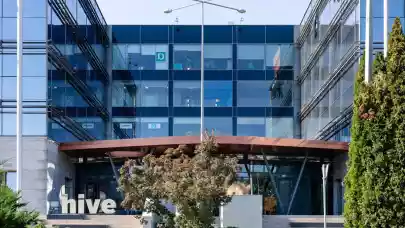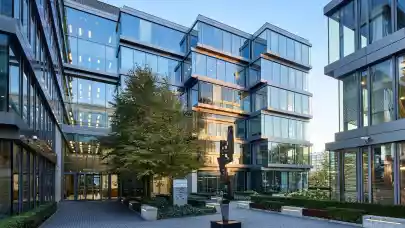
The first online panel of Property Forum took place yesterday, where six experts discussed the effects of the coronavirus outbreak on the real estate market in CEE. Our panelists discussed who could be the biggest winners and losers of the current situation, what to expect in the logistics and retail markets and how the current spread of remote working may affect the office market and coworking operators. They also explained the possible impact of the coronavirus crisis on investments and ongoing and planned developments.
As the EU is missing the chance to act cohesively and decisively on the current crisis, the economic recovery of the region will be very segmented, explained Gijs Klomp MRICS, Head of Investment Properties Romania at CBRE. We can expect major changes in supply chains. The role of suppliers from the Far East may diminish, which will also benefit Europe and the region. Technology can help transactions in some countries, but in Romania, for example, personal meetings and tours of buildings are still very important. Investors have never bought a property without a personal visit, so the availability of travelling is the key in this regard.
The fast spread of the virus affects retail tenants the most right now, although stores selling essential goods such as supermarkets are performing very well. The logistics market is also soaring while hotels are suffering, but it is definitely too early to draw any long-term conclusions regarding the performance of individual asset classes. Nothing like this has really happened before, all countries and sectors are impacted in some way, so we need more time to see the exact outcome.
We will hopefully be able to close the deals which are currently in the pipeline while our Polish and Hungarian constructions continue. However, they are will be no new transactions without sight visits, Noah Steinberg FRICS, Chairman & CEO at WING explained.
According to Hannes Wimmer, Executive Director, Loan Syndication at Erste Group Bank AG, there is still hope for a V-shaped quick rebound. In the region, we see that tenants can still pay their rents, but in the long run, if the situation will not go back to normal by August, they will not be able to make payments anymore. He agreed that logistics does not seem to be affected by the crisis. If we look at manufacturing facilities though, the picture may no longer be entirely positive. It is also a problem that some building materials are not available in the country and foreign imports are more difficult to access.
Victor Constantinescu, Managing Partner, Romania & Co-Head of Real Estate at Kinstellar, was also optimistic regarding the course of the crisis and does not expect a setback like 2008, as the markets are stronger now. However, we do not know where this situation is heading, how long it is going to last and this is the main problem. He suggested a case to case approach to forecasting anything accurately. The current widespread practise of remote working can be seen as a long-term test that will determine whether office tenants really need so much office space, he added.
Luke Dawson, Managing Director & Head of Capital Markets CEE at Colliers International, stated that our regional markets are still highly connected to each other. Regarding the implications for the office market, the sector in which the tenant works is crucial. Obviously, a travel agency is differently affected by the COVID-19 crisis than a tenant working in the IT sector. The SSC sector will be worth paying attention to. While remote working does work well in our region, in India for example, where the sector is also significant, it is less widespread due to the absence of proper infrastructure. From this perspective, our region may even profit from the global lockdowns. We see that in China everybody went back to work and they started reopening stores as soon as the health crisis cleared. After the outbreak, life will likely get back to normal very quickly, but there will certainly be new habits in shopping.
It is very positive that construction works are still going, although of course there is a certain slowdown due to the fact that many guest workers have gone home, he added.
Adrian Karczewicz, Head of Divestments at CEE of Skanska Commercial Development Europe, explained the attitude of construction workers has changed as they are worried about the circumstances and their jobs but construction works are still in progress. The biggest challenge is bringing people in, as it is impossible to start any new marketing process without the physical inspection of the property, even with technologies like VR, Google services or virtual tours.
Regarding remote working, depending on the job and the age group the employee belongs to, the combination of office work and remote working may intensify in the future. Many people are anxious about having to work from home right now and can’t wait to get back to the office, which is why the end of the outbreak is not expected to result in the mass adaptation of remote working rather in more flexible working conditions.
The co-working business is one that is also severely affected by the epidemic, but after the crisis ends, there will still be demand for co-working space, particularly because both tenants and landlords will be afraid of making a long-term commitment.



